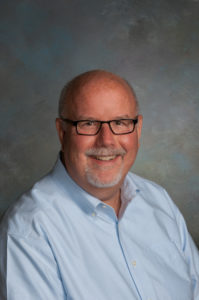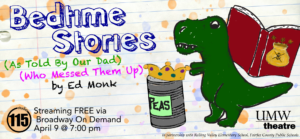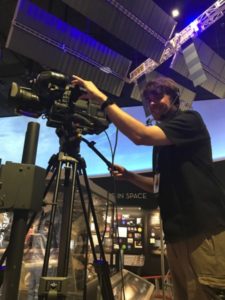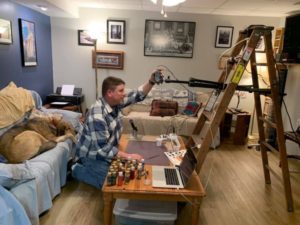
Construction-related activities begin this month on UMW’s new theatre, a fresh academic home for the Department of Theatre and Dance.
Construction-related activities begin this month on the University of Mary Washington’s new theatre – a new academic home for the Department of Theatre and Dance that will be a student-focused hub of arts enrichment designed to inspire creativity and foster student success.
What’s happening and when:
- Demolition of Brent House starts this month.
- Once complete, demolition will proceed at Marshall and Russell Halls.
- The Marshall hill roadway and the Marshall and Russell parking lots are closed for the duration of the project.
Impacts may be experienced, such as loud noise, dust and increased activity during demolition and construction. Every effort will be made to mitigate and minimize impacts to surrounding areas.
Ways we’re keeping things in check:
- Limits on Construction and Erosion & Sediment Control: We’ll implement best-practice erosion control measures, including silt fencing, dust suppression systems, perimeter fencing and stabilized construction entrances.
- Ongoing Monitoring: Dedicated environmental staff will conduct regular inspections to ensure all controls are functioning effectively, even in changing weather.
- Construction Timelines: Demolition and major work will take place in accordance with the City of Fredericksburg noise ordinance, from 7 a.m. to 7 p.m. Monday through Friday and 9 a.m. to 9 p.m. on Saturdays, Sundays and holidays.
Work is being done hand-in-hand with the city to minimize traffic disruptions, maintain clean streets, and rebuild this corner of campus to connect with downtown and our neighbors. In addition, we’re completing parking lot maintenance throughout the summer. Crews will be on campus to mill, pave, seal and stripe several parking lots, including improvements for drainage at the Sunken Road parking entrance.
We hope these updates will enhance safety, function and appearance and appreciate patience as this work is completed. This project along the Sunken Road side of the Fredericksburg campus aims to build a new cultural landmark that adds value for students, campus and the surrounding neighborhoods and community.



 UMW Theatre and Studio 115 has teamed up with Fairfax County Public Schools to present Bedtime Stories (As Told By Our Dad) (Who Messed Them Up) by Ed Monk.
UMW Theatre and Studio 115 has teamed up with Fairfax County Public Schools to present Bedtime Stories (As Told By Our Dad) (Who Messed Them Up) by Ed Monk.

